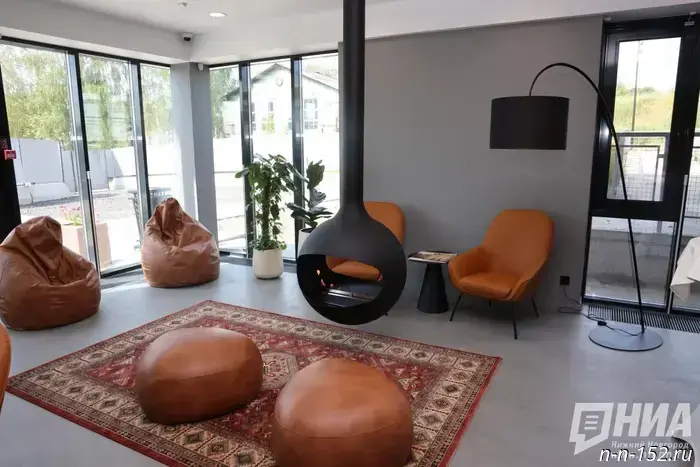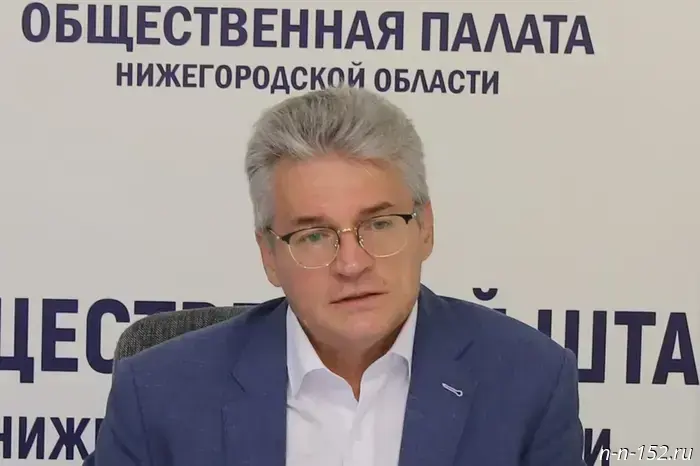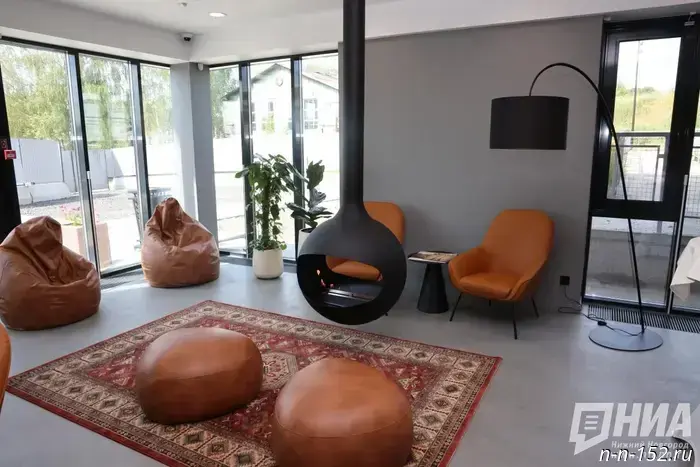
The experience of the "Capital of Financial Culture" project in other areas: expert opinions
In March 2025, Nizhny Novgorod region won the All-Russian competition "Capital of Financial Culture." The competition, organized by the Ministry of Finance of the Russian Federation and the Central Bank of Russia, featured our region presenting the interactive project "Resident of the Capital of Financial Culture." The main idea of this project is to increase the financial literacy of the population. Modern gamified and interactive technologies are used in its implementation.
Currently, more than 24,000 people have become participants—"residents of the Capital of Financial Culture"—and applications for participation continue to be received. This indicates that the project has not only been launched but also demonstrates high demand among residents of Nizhny Novgorod. People are eager to enhance their personal competencies in personal finance because "content available on the portal helps understand principles of safe behavior in the financial market, develop useful financial habits, and confidently navigate questions related to borrowing, insurance, and investing."
The practical success of the "Resident of the Capital of Financial Culture" project allows for the replication of Nizhny Novgorod's experience in other regions and the use of a similar approach to improve knowledge in other areas. We asked experts to name fields where such an educational model could benefit people.
Yevgeny Semenov, Deputy Chairman of the Public Chamber of Nizhny Novgorod, head of the Nizhny Novgorod branch of FORGO, political scientist, PhD in Political Science, Associate Professor:
"The experience of Nizhny Novgorod in implementing the modern interactive educational project 'Resident of the Capital of Financial Culture' can serve as a basis and be replicated. The question is not about the success of the project or its demand among consumers—that is obvious. There is also no doubt about the range of areas where this project-based method could be applied. Whatever spheres of life and activity we mention—from healthcare and housing services to gardening and repair—there is an inherent need to improve personal competencies. Clearly, this list will be open-ended."
Roman Permyakov, Deputy Chairman of the Public Chamber of Nizhny Novgorod:
"The success of the 'Resident of the Capital of Financial Culture' project, with over 24,000 participants in our region alone, vividly demonstrates the demand for modern gamified and interactive technologies in engaging with the population. Society has significantly changed in recent years amid the rapid development of digital technologies. Firstly, Generation Z is entering active adult life, requiring entirely new approaches—interactivity and engagement within a virtual community are crucial for them, and gaming is the most familiar form of communication for this demographic. Secondly, society’s expectations for the communication effectiveness of authorities have increased; to promote correct behavioral narratives and involve citizens in state life, new technological and communication approaches are necessary. Moreover, such technologies can be relevant where civic engagement in decision-making is needed, such as in participatory budgeting and the development of a comfortable urban environment, which in a gaming communication format could attract even greater public interest."
Elena Mozgunova, historian, PhD in Political Science, Associate Professor at the Nizhny Novgorod Institute of Management—branch of RANEPA:
“Interest in the 'Resident of the Capital of Financial Culture' project is quite logical and justified: daily we make decisions regarding personal savings, and competent resource management will lead to tangible results and help people feel more confident in the economy of the future. The benefits for citizens, especially amid accelerating digitalization, are evident. I believe such projects can be extended to various fields, such as legal literacy and raising awareness of legal issues."
Andrey Samsonov, research fellow at the Volga branch of FNIIS RAS, senior researcher at the Non-Profit Organization 'Research Institute for Social Management Issues':
“The answer can be divided into two parts. The first—target audiences rather than specific fields. This includes the older generation, which faces the greatest difficulties in using and adapting to various innovations. Youth are another target group—focusing here on skills in areas important for future life, but not necessarily 'commercial.' Additionally, young parents, especially women on maternity leave, could be targeted. The second part involves specific fields: first, a wide range of 'non-commercial' IT areas—from information security and, more broadly, hygiene, to training in skills related to 'artificial intelligence.' Second, basic first aid skills and overall healthy lifestyle practices—knowing how to administer an injection correctly, apply a fixation bandage, understanding permissible physical activities, and which foods and in what 'doses' are safe. Third, the much-discussed legal literacy—basic understanding of civil law (Civil Code), rights and responsibilities as homeowners in relations with homeowners’ associations, resource-supplying and maintenance organizations, and more."
Andrey Chugunov, journalist:
“The approaches used in the 'Resident of the Capital of Financial Culture' project—training in personal finance management, forming responsible and safe financial behaviors, developing investment skills—are declared by many but are quite rarely implemented widely. That over 24,000 residents of Nizhny Novgorod have registered on the portal—to be prepared to acquire new knowledge and even organize educational events—is undoubtedly encouraging. Skeptics might say that 0.1% of the population is involved, but as the saying goes, one percent is enough to change the lives of the remaining 99%. I very much look forward to seeing how this program has impacted the reduction—both in Nizhny Novgorod region and throughout Russia—of people falling for scams.”
The material was prepared as part of a joint project of NIA 'Nizhny Novgorod' and the federal 'Expert Club.' NIA 'Nizhny Novgorod' has a Telegram channel. Subscribe to stay updated on major events, exclusive materials, and timely information. Copyright © 1999–2025 NIA 'Nizhny Novgorod.' Hyperlink to NIA 'Nizhny Novgorod' is required when reproducing. This resource may contain 18+ materials.
Другие Новости Нижнего (Н-Н-152)
 Nizhny Novgorod "Ruspolimet" has established the production of gas turbine parts for GTD-110M.
Nizhny Novgorod. August 7. NTA-Privolye - Nizhny Novgorod "Ruspolimeter" has established the production of gas turbine parts GTE-110M. 07.08.2025. NTA-Privolye. Nizhny Novgorod Region. Nizhny Novgorod.
Nizhny Novgorod "Ruspolimet" has established the production of gas turbine parts for GTD-110M.
Nizhny Novgorod. August 7. NTA-Privolye - Nizhny Novgorod "Ruspolimeter" has established the production of gas turbine parts GTE-110M. 07.08.2025. NTA-Privolye. Nizhny Novgorod Region. Nizhny Novgorod.
 Mrs. Universe from Nizhny Novgorod spoke about conquering a glacier in Alaska.
Mrs. Universe from Nizhny Novgorod spoke about conquering a glacier in Alaska.
 Evgeny Semenov: "The experience of the Nizhny Novgorod region can be replicated."
Evgeny Semenov: "The experience of the Nizhny Novgorod region can be replicated."
 They want to build a year-round glamping park in Nizhny Novgorod.
Notice of the General Meeting of Shareholders
At the initiative of the Balakhna Municipal District Administration of the Nizhny Novgorod Region, a meeting of co-owners of a land share in an agricultural land plot will be convened on 07.08.2025. Balakhna Municipal District. Nizhny Novgorod Region. Balakhna.
They want to build a year-round glamping park in Nizhny Novgorod.
Notice of the General Meeting of Shareholders
At the initiative of the Balakhna Municipal District Administration of the Nizhny Novgorod Region, a meeting of co-owners of a land share in an agricultural land plot will be convened on 07.08.2025. Balakhna Municipal District. Nizhny Novgorod Region. Balakhna.
 Doctors at PIMU reattached a hand cut off with a saw to a resident of Nizhny Novgorod.
Doctors at PIMU reattached a hand cut off with a saw to a resident of Nizhny Novgorod.
